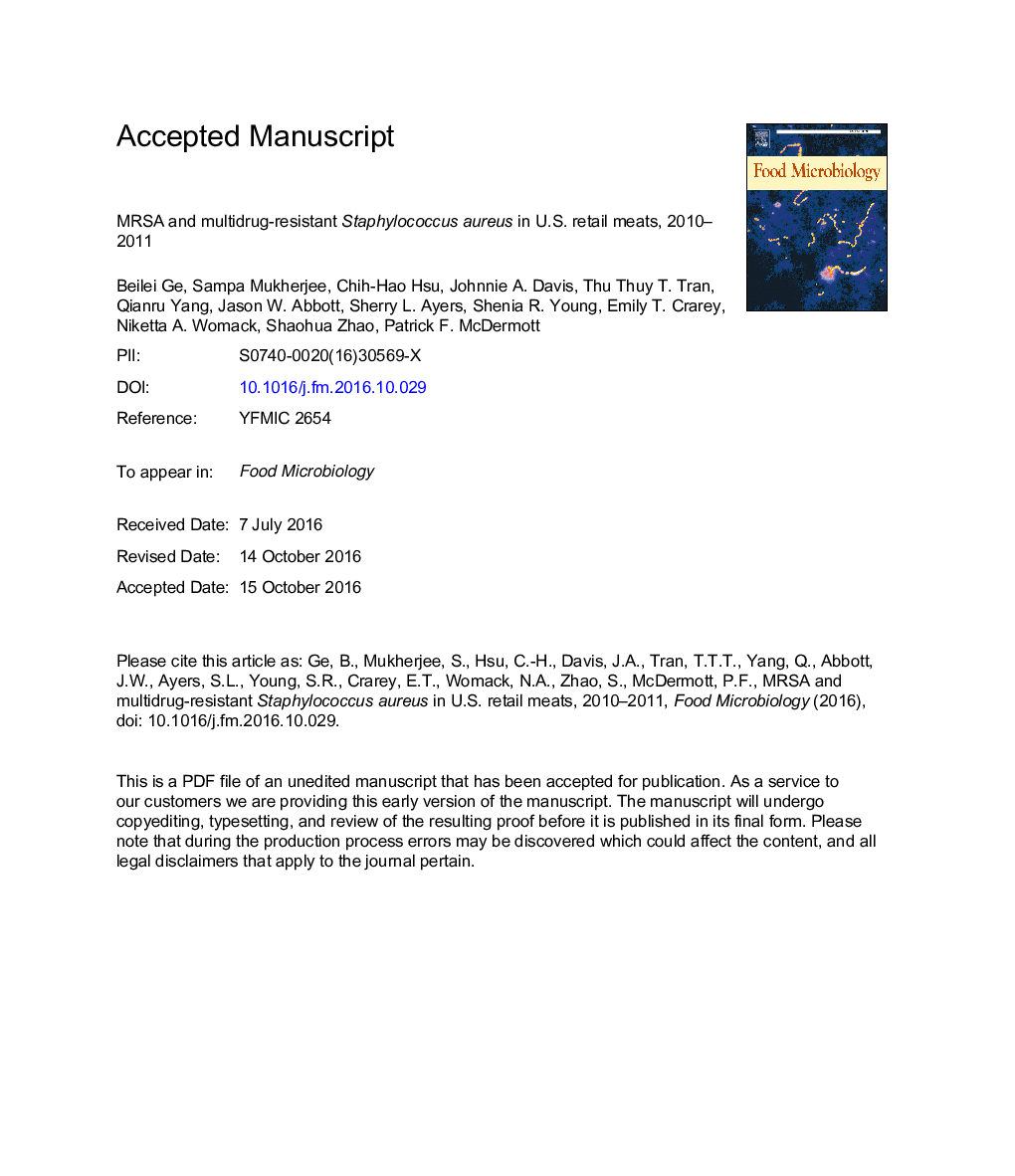| Article ID | Journal | Published Year | Pages | File Type |
|---|---|---|---|---|
| 8843661 | Food Microbiology | 2017 | 37 Pages |
Abstract
Methicillin-resistant Staphylococcus aureus (MRSA) has been detected in retail meats, although large-scale studies are scarce. We conducted a one-year survey in 2010-2011 within the framework of the National Antimicrobial Resistance Monitoring System. Among 3520 retail meats collected from eight U.S. states, 982 (27.9%) contained S. aureus and 66 (1.9%) were positive for MRSA. Approximately 10.4% (107/1032) of S. aureus isolates, including 37.2% (29/78) of MRSA, were multidrug-resistant (MDRSA). Turkey had the highest MRSA prevalence (3.5%), followed by pork (1.9%), beef (1.7%), and chicken (0.3%). Whole-genome sequencing was performed for all 66 non-redundant MRSA. Among five multilocus sequence types identified, ST8 (72.7%) and ST5 (22.7%) were most common and livestock-associated MRSA ST398 was assigned to one pork isolate. Eleven spa types were represented, predominately t008 (43.9%) and t2031 (22.7%). All four types of meats harbored t008, whereas t2031 was recovered from turkey only. The majority of MRSA (84.8%) possessed SCCmec IV and 62.1% harbored Panton-Valentine leukocidin. Pulsed-field gel electrophoresis showed that all ST8 MRSA belonged to the predominant human epidemic clone USA300, and others included USA100 and USA200. We conclude that a diverse MRSA population was present in U.S. retail meats, albeit at low prevalence.
Keywords
Related Topics
Life Sciences
Agricultural and Biological Sciences
Food Science
Authors
Beilei Ge, Sampa Mukherjee, Chih-Hao Hsu, Johnnie A. Davis, Thu Thuy T. Tran, Qianru Yang, Jason W. Abbott, Sherry L. Ayers, Shenia R. Young, Emily T. Crarey, Niketta A. Womack, Shaohua Zhao, Patrick F. McDermott,
